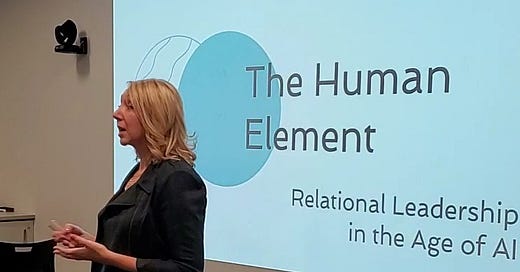Welcome to Monday Mastery, a series designed to shift your perspective, teach you new techniques, and help you become a more effective writer, one tip at a time.
Two weeks ago, I was interviewed for a podcast on the topic of using AI in the writing process. I get interviewed about this topic a lot due to my graduate research, and I’ve noticed that no matter how the conversation is framed, I always get asked some variation of this question:
Can using AI for writing help people fight against bias?
In other words, does AI give you an advantage when you are disadvantaged?
Can it help you fit in?
My answer usually surprises people:
Yes … but there’s always a cost to sounding like everyone else.
First, there’s a systemic cost. In the workplace, using AI to sound like everyone else reinforces the existing power structure. So if you are socio-economically or educationally disadvantaged, you’re actually reinforcing the very system that is making you feel like you have to sound like everyone else. Yes, eliminating telltale phrasing and communication patterns can fool your reader into forming a certain picture of you in their mind, but it’s entrenching their bias at the same time. (And then of course you have to keep up that false persona, or risk being discovered as a fraud.)
Second, there’s a mental and emotional cost. When you let a machine make your communication choices for you, there’s no “you” in your communication. You are, by definition, being inauthentic. You are not letting your reader know you as the beautiful and complex human you are. Hiding yourself takes a psychological toll. We can only mask our authentic self for so long before the effort exhausts us.
Third, and most importantly in my opinion, writing to fit in defeats the purpose. Writing is an expression. It is a fundamentally creative act and an act of trust between writer and reader. Our writing should be as individual as our fingerprints.
In fact, our writing should have our fingerprints all over it.
Using AI to write for you sounds easier than doing the work of forming your thoughts and ideas into coherent writing, I get it. But ultimately, it’s not easier. It costs you your distinct humanity, it’s a heavy psychological burden, and it defeats the purpose of writing — which is to connect human-to-human with the reader.
We all want quick fixes to the bias that exists in our world. But there is no quick fix. There is only the painstaking process of revealing our humanness and connecting with the humanness of others.




